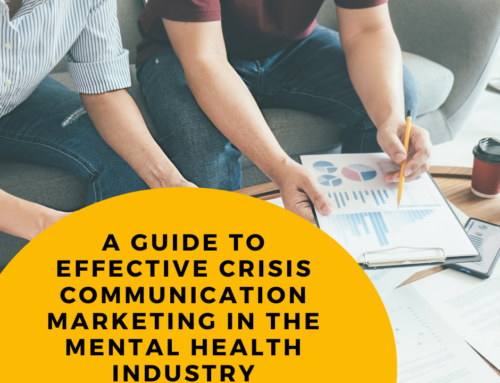In an increasingly interconnected world, mental health marketing must evolve to cater to diverse audiences. The key to breaking down language barriers and ensuring that vital resources reach those who need them most, regardless of their linguistic background, is ensuring the accuracy of the information by using the various tools and professionals available to you.
But how can we create effective and accessible marketing materials that resonate across cultures while navigating the challenges of multilingual marketing? Read on to learn about the benefits of multilingual mental health marketing, the components of a successful strategy, and the tools and techniques available to help you reach a global audience.
What is Multilingual Mental Health Marketing?

Multilingual mental health marketing involves creating and disseminating mental health content in multiple languages to engage diverse audiences and bridge language differences. By implementing a multilingual approach to marketing, businesses can enjoy an increased influx of traffic and a more effective connection with their audience. This leads to improved customer satisfaction and loyalty, creating more business opportunities for companies working internationally.
Moreover, utilizing multilingual content in social media marketing can aid in reaching new markets with more personalized messaging. People from different cultural backgrounds can better comprehend mental health topics, resulting in heightened engagement with mental health services. Creating content in the customer's native language can show an understanding and respect for their culture and values. This can also ensure that customers who are not fluent in English receive appropriate support.
Why is it Crucial in Today's Globalized World?
In the current globalized environment, where the internet and search engines play a significant role, multilingual mental health marketing is paramount to extend reach, enhance accessibility, and foster mental health awareness among various cultures. Creating marketing collateral that resonates with a diverse audience is essential to ensure that individuals needing mental health treatment can access the resources they require and receive the healing they deserve.
Familiarizing oneself with the local culture, language, and customs, as well as the legal and financial aspects of the audience, is vital when creating marketing materials for multilingual mental health campaigns. Ensuring that website materials are tailored to the regions being targeted is essential, as there may be cultural nuances and local market specifics that audiences in each location expect.
By adopting a successful multilingual marketing strategy, businesses can facilitate the expansion of reach, increase accessibility, and encourage mental health awareness among different cultures.
Key Components of a Successful Multilingual Mental Health Marketing Strategy

In mental health, the message's accuracy and cultural sensitivity are paramount. A successful multilingual marketing strategy goes beyond mere translation. It starts with a deep understanding of target languages and cultures, ensuring that content resonates with diverse audiences. Cultural competency ensures that messages align with local beliefs and values. Leveraging technology, from translation tools to AI-driven platforms, can streamline the process, while collaboration with mental health professionals ensures content accuracy and relevance.
An effective multilingual mental health marketing strategy necessitates identifying target languages and cultures, ensuring cultural competency, employing precise language, utilizing technology, and collaborating with behavioral health professionals. These components, when combined, can help create marketing materials that resonate with diverse audiences and improve mental health outcomes.
Identifying Target Languages and Cultures
The initial step in devising a successful multilingual content marketing strategy, especially for mental health, is recognizing target languages and cultures to guarantee that content is relevant and available to varied audiences. Employing professional translators who can provide more precise translations considering local cultural nuances is essential. Following this best practice ensures proper procedures and tools for effective translation.
Ensuring Cultural Competency in Mental Health Marketing
Guaranteeing cultural competency in mental health marketing ensures that the intended audience understands and values the message, ultimately leading to better mental health care for diverse populations. Cultural competency in multilingual mental health marketing involves acknowledging and respecting cultural differences and adapting marketing strategies to effectively reach and engage individuals from different cultures and language backgrounds. This includes understanding the audience's cultural context, such as their values, beliefs, and beliefs.
Using Precise Language to Ensure Accurate Message Delivery
Employing precise language to guarantee accurate message delivery is essential to guarantee that the audience comprehends and appreciates the message, which can contribute to improved mental health outcomes. Using precise language can foster trust with the target audience by accurately conveying the intended meaning and avoiding potential miscommunications or misinterpretations. Using precise language is essential for writers to ensure their message is understood.
Leveraging Technology for Effective Multilingual Marketing
Utilizing technology for efficient multilingual content marketing can facilitate increased brand recognition, client engagement, improved social media marketing strategies, heightened brand loyalty, and better conversion rates in the mental health sector. Translation tools and multilingual platforms can reduce misunderstandings in behavioral health sessions, enabling more effective care and communication between patient and provider.
Collaborating with Mental Health Professionals

Working with behavioral health professionals can guarantee the message is precise and suitable for the intended audience. Businesses can collaborate effectively with professionals by establishing clear communication, demonstrating cultural competence, creating content collaboratively, respecting professional boundaries, providing training and education, and regularly evaluating and providing feedback to create accurate and relevant multilingual marketing content. These steps help ensure the content is culturally appropriate and tailored to the audience.
Challenges and Solutions in Multilingual Mental Health Marketing
Multilingual mental health marketing presents challenges such as overcoming language barriers, addressing cultural stigmas, and adhering to ethical marketing practices. To address these challenges, businesses can implement technology, develop cultural proficiency, and work with mental health professionals.
Overcoming Language Barriers in Behavioral Health Sessions
The language barrier is one of the most immediate challenges in multilingual mental health marketing. A potential solution to overcome linguistic barriers in behavioral health sessions is technology, such as translation tools and multilingual platforms. These tools can facilitate communication between patient and provider, thus enabling more effective care and ensuring that all patients feel comfortable expressing themselves and can receive the necessary care.
By utilizing these tools, providers can ensure that all patients can communicate their needs and receive care. Additionally, collaborating with native speakers and cultural experts can ensure the content is linguistically accurate and culturally sensitive.
Addressing Cultural Stigmas and Misconceptions
Cultural competency, sensitivity, and collaboration with mental and behavioral health professionals can effectively address cultural stigmas and misconceptions related to mental illness by delivering culturally sensitive mental health services, recognizing the cultural context of mental health issues, and establishing a secure and inviting atmosphere for individuals of all backgrounds.
Multilingual mental health marketing tactics can be more effective and successful by understanding the cultural setting of mental health matters, offering culturally sensitive mental health services, and establishing a secure and inviting atmosphere for individuals of all backgrounds.
Ensuring Compliance and Ethical Marketing Practices
Ensuring compliance and ethical marketing practices in multilingual mental health marketing involves adhering to guidelines, respecting cultural differences, and prioritizing the well-being of the target audience. By establishing ethical guidelines for advertising, product promotion, targeting, pricing strategies, communication, and public relations, businesses can create marketing strategies that are ethical and appropriate for the target audience.
Stay updated with local regulations regarding health marketing in target regions. Regular training sessions for the marketing team on ethical practices can ensure that all campaigns are compliant and respectful. These guidelines should be tailored to the target audience and regularly reviewed to ensure they remain ethical and effective.
Multilingual SEO: Optimizing for Global Reach

With most consumers using search engines to find information, optimizing your content for multiple languages is crucial. Multilingual SEO is crucial in mental health marketing to reach a global audience, optimize keywords for different languages, and utilize tools and techniques for effective SEO strategies.
Multilingual SEO ensures that your content is discoverable by users in their native language, increasing visibility and engagement. By optimizing content with SEO and creating content in multiple languages, businesses can increase the visibility of their website when individuals search for information online.
Importance of Multilingual SEO in Mental Health Marketing
Multilingual SEO is essential in mental health marketing, enabling businesses to reach a broader audience and enhance visibility across different languages and locations. By optimizing their website and content for multiple languages, businesses can draw in and engage with individuals who prefer to consume information in their native language, resulting in improved accessibility, superior user experience, and heightened trust and credibility among diverse communities. This can be a powerful tool for businesses to reach a wider audience and build customer relationships.
Best Practices for Multilingual Keyword Optimization
Optimizing keywords for a multilingual audience is a nuanced process that requires more than direct translation. Here are some best practices to ensure effectiveness:
- Local Keyword Research: Instead of directly translating English keywords, conduct keyword research for each target language. Use tools like Google's Keyword Planner or SEMrush to identify popular search terms in specific regions.
- Understand Cultural Nuances: A phrase popular in one culture might not resonate in another. Understand keywords' local context and sentiment to ensure they align with the target audience's intent.
- Avoid Keyword Stuffing: While incorporating keywords is essential, overloading content can harm readability and SEO rankings. Ensure a natural flow by integrating keywords organically.
- Leverage Long-Tail Keywords: These are longer, more specific keyword phrases that visitors are more likely to use when they're closer to purchasing or seeking detailed information. They can be goldmines in terms of conversion.
- Monitor and Adjust: SEO is an ongoing process. Regularly monitor keyword performance and adjust your strategy based on data. Tools like Google Analytics can provide insights into which keywords drive traffic and conversions.
- Engage Native Speakers: Collaborate with native speakers or experts familiar with the local culture. They can provide insights into colloquial terms or phrases that might not appear in standard keyword research tools but are commonly used by the local population.
By adhering to these best practices, you can ensure that your multilingual content is discoverable and resonates with diverse audiences, driving engagement and conversions.
Tools and Techniques for Effective Multilingual SEO
Navigating the complexities of multilingual SEO requires combining the right tools and techniques. Here's a deep dive into some essentials:
- Hreflang Tags: These HTML tags inform search engines about a web page's language and geographical targeting. They ensure that the correct language version of your site appears in search results, reducing duplicate content issues.
- Translation Management Systems (TMS): Platforms like Transifex or Smartling facilitate translation, ensuring content consistency across multiple languages.
- Google Search Console: This tool allows you to monitor the performance of your multilingual sites. You can track which queries drive traffic to your site and ensure your content is indexed correctly for each language.
- SEMrush: Beyond its keyword research capabilities, SEMrush offers site audit features that can identify potential SEO issues specific to multilingual websites.
- Moz Pro: This comprehensive SEO toolset provides insights into link building, rank tracking, and site audits, all essential for optimizing multilingual sites.
- Geo-Targeting: Use tools like Google My Business to target specific regions or countries. This ensures that users from a particular geographical area are directed to the appropriate language version of your site.
- Content Delivery Networks (CDN): CDNs like Cloudflare or Akamai can detect a user's location and serve content from the nearest server, ensuring faster load times for your multilingual sites.
- Multilingual Plugins: For platforms like WordPress, plugins such as WPML or Polylang can simplify creating and managing multilingual content.
- Cultural Testing: Use platforms like UsabilityHub to gather feedback on your multilingual content. This ensures that it's not only linguistically accurate but also culturally appropriate.
- Continuous Monitoring: SEO is ever-evolving. Regularly monitor algorithm updates and adjust your strategies accordingly. Tools like Ahrefs can help track backlinks, keywords, and competitor performance in various languages.
By leveraging these tools and techniques, businesses can ensure that their multilingual content is optimized for search engines, providing a seamless experience for users across different languages and regions.
Measuring the Success of Multilingual Marketing Strategies for Mental Health Services
Measuring the success of your strategies involves tracking key performance indicators (KPIs), analyzing data, and adjusting strategies based on results. By monitoring KPIs over time and comparing them to industry standards, businesses can make informed decisions about their marketing strategies and ensure continuous improvement.
Key Performance Indicators (KPIs)

When assessing the effectiveness of multilingual mental health marketing campaigns, some key performance indicators (KPIs) include website traffic, social media engagement, conversion rates, brand mentions, patient surveys, and evaluating the effectiveness of the intake process. These KPIs can help businesses gauge the success of their multilingual mental health marketing efforts and identify areas for improvement.
Analyzing Data and Adjusting Strategies
Marketers can ensure their campaigns remain optimized by regularly reviewing the data and insights collected from their efforts. This can help them identify opportunities for improvement and optimize their mental health marketing strategies. By continually monitoring and adjusting their campaigns based on data and insights, businesses can stay ahead of the competition and effectively reach their target audience.
Discover Comprehensive Multilingual Marketing for Mental Health Services with Lead to Recovery
In today's globalized world, multilingual mental health marketing is essential for reaching diverse audiences and ensuring accessibility to vital mental health resources. Businesses can create marketing campaigns that resonate across cultures and languages by employing effective strategies, leveraging technology, and collaborating with mental health marketing agencies. With the help of comprehensive marketing services like Lead to Recovery, businesses can break down barriers, address cultural stigmas, and promote mental well-being for all.
By partnering with Lead to Recovery, businesses can ensure their multilingual mental health marketing campaigns resonate with their target audience and promote greater awareness of mental health resources and services. Book a discovery call with our team today to get started.




